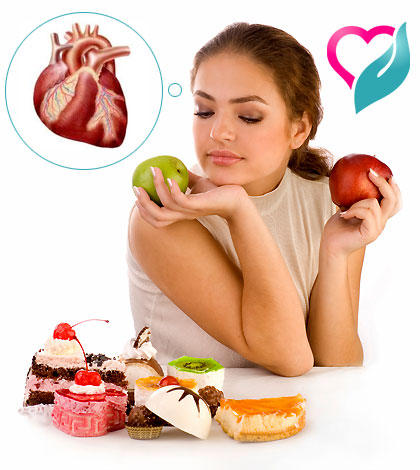You probably already knew junk food is bad for your waistline, but did you ever stop to think about what it is doing to your heart?
[wp_ad_camp_1]
The foods that you love, may actually not be liked by your heart!! In particular, foods high in saturated fat, sodium and cholesterol – all of which can raise the risk of heart disease and heart attack, according to the National Institutes of Health (NIH). So drop your fork, and pay attention.
A heart attack results from a blockage in the flow of blood to the heart, causing heart cells to die. This may result from many causes such as smoking, inactivity, and a diet high in calories, sodium and saturated fats. Heart attacks are a leading cause of death for both men and women in the United States, and there are several ways to quicken your path to a heart attack.
The optimum daily diet of an adult should consist of roughly 2,000 calories, fewer than 1,500 milligrams of sodium, fewer than 16 grams of saturated fat, and fewer than 300 milligrams of cholesterol. The yummy fast foods you crave may often give you this and more in just one meal. Don't go by nutrition labels alone.
[wp_ad_camp_4]
Foods boasting of zero trans-fat still might be loaded with saturated fats, so you might still be in luck. Also, these labels display information about one serving size, and the container might have several servings. So you might have the opportunity to double, triple or even quadruple those numbers.
Let us now run through some fact files and find what these do to our heart.
Fat
Research makes it clear that abnormal blood lipid (fat) levels have a strong correlation with the risk of coronary artery disease, heart attack, and coronary death, and abnormal blood lipids are in turn related to what you eat. A diet high in saturated fats (e.g. cheese) and trans fats (often used in cakes, cookies and fast food) leads to high levels of cholesterol. Saturated fats are found in animal products. Trans fats are oils that have been hydrogenated to turn them into semi-hard fats. Hydrogenated fat is found in processed food like shop-bought cakes, biscuits, stock cubes and a range of other products you buy every day. Saturated and trans fats raise cholesterol levels in the blood, which in turn can lead to atherosclerosis(hardening and narrowing of arteries).
Unsaturated fats (polyunsaturated and monounsaturated) are beneficial for heart health. They are present in fish, nuts, seeds and vegetables.
The essential fatty acids, omega-3 and omega-6, are found in oily fish and in nuts and seeds and help improving cholesterol levels in the body. However, it is important to note that if your total fat intake is greater than 37% of your total calories, then even if that fat is unsaturated, you increase your risk of cardiovascular disease. Saturated fat intake should not exceed 10% of total energy and for high-risk groups, like people with diabetes, total fat intake should be 7% or less of total energy.
Sodium
High blood pressure (hypertension) is a major risk factor for cardiovascular disease. If you have a diet high in sodium you run a risk of hypertension.
Fruits and vegetables
Eating a diet high in fresh fruits and vegetables, protects your heart.
Wholegrain cereals
Whole grains are unrefined and have the bran or germ intact. They contain folic acid, B vitamins and fiber, all of which are important protectors against heart disease. Refined or processed foods like white bread, white rice, low-fiber breakfast cereals, sweets and sugars, and other refined or processed carbohydrates on the other hand aren’t healthy. Why? First, high levels of processing remove many of the most healthful components in whole grains, such as dietary fiber, minerals, phytochemicals, and fatty acids. Second, high levels of processing destroy the natural structure of the food.
Fish
It is noted that in countries where fish consumption is high, there is a reduced risk of death from all causes as well as cardiovascular mortality.
Nuts
Eating nuts regularly is associated with decreased risk of coronary heart disease.
Soy
There is evidence that soy has a beneficial effect on blood lipid levels.
Alcohol
If you have an occasional drink, you may protect your heart, but only if you drink in moderation.
Conversely, should you so desire, you could avoid some foods to lower your risk of a heart attack. These would include chips, fried chicken, sausages, steak, burgers, cheese cake, pizza, pasta, ice cream, doughnuts, soft drinks and other sugary drinks.
Hence to have a healthy heart, we just need to eat most natural and least processed foods of all. The slogan for ourselves today could therefore be "Love your heart and eat what it likes."
Image courtesy: imgur.com , confusedsandals.com , diezminutos.es , americdn.com , huffpost.com , eatthis.com
































